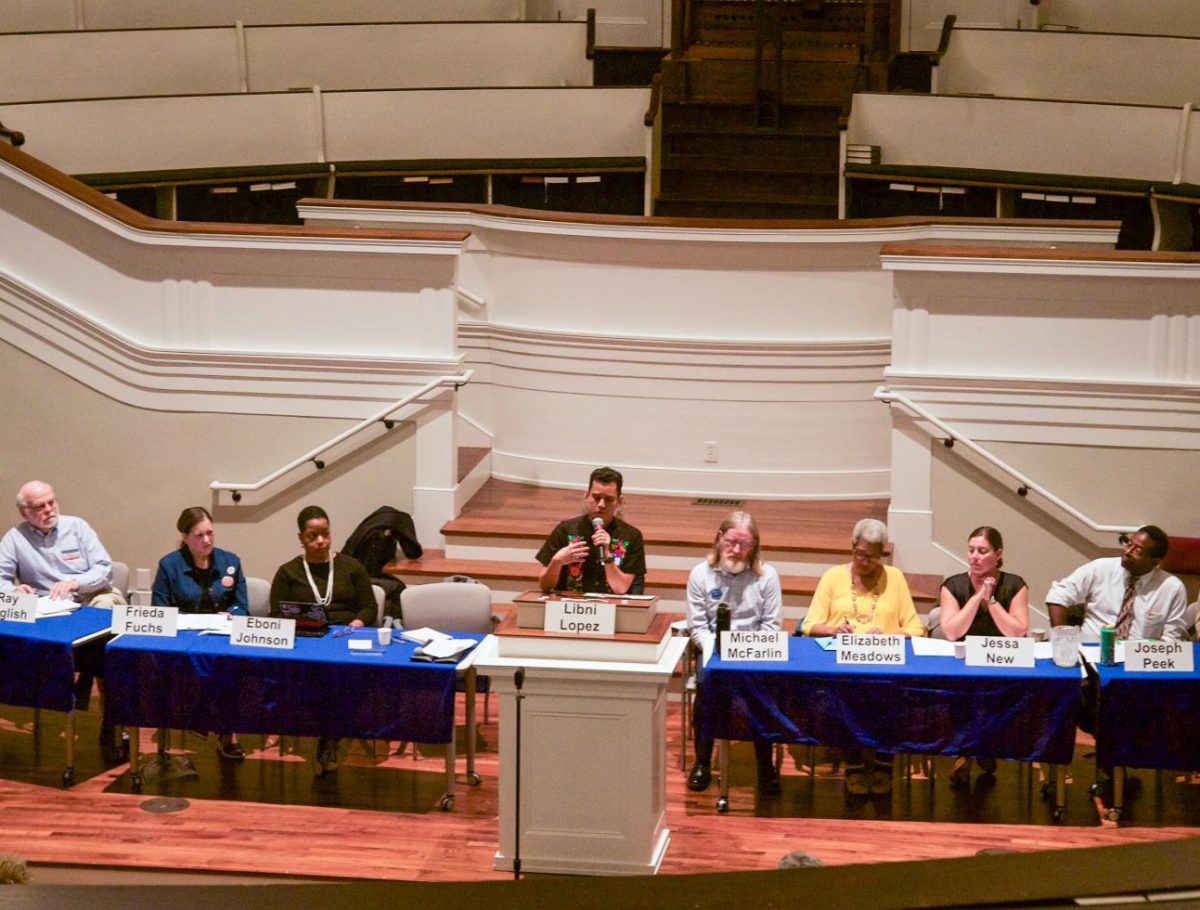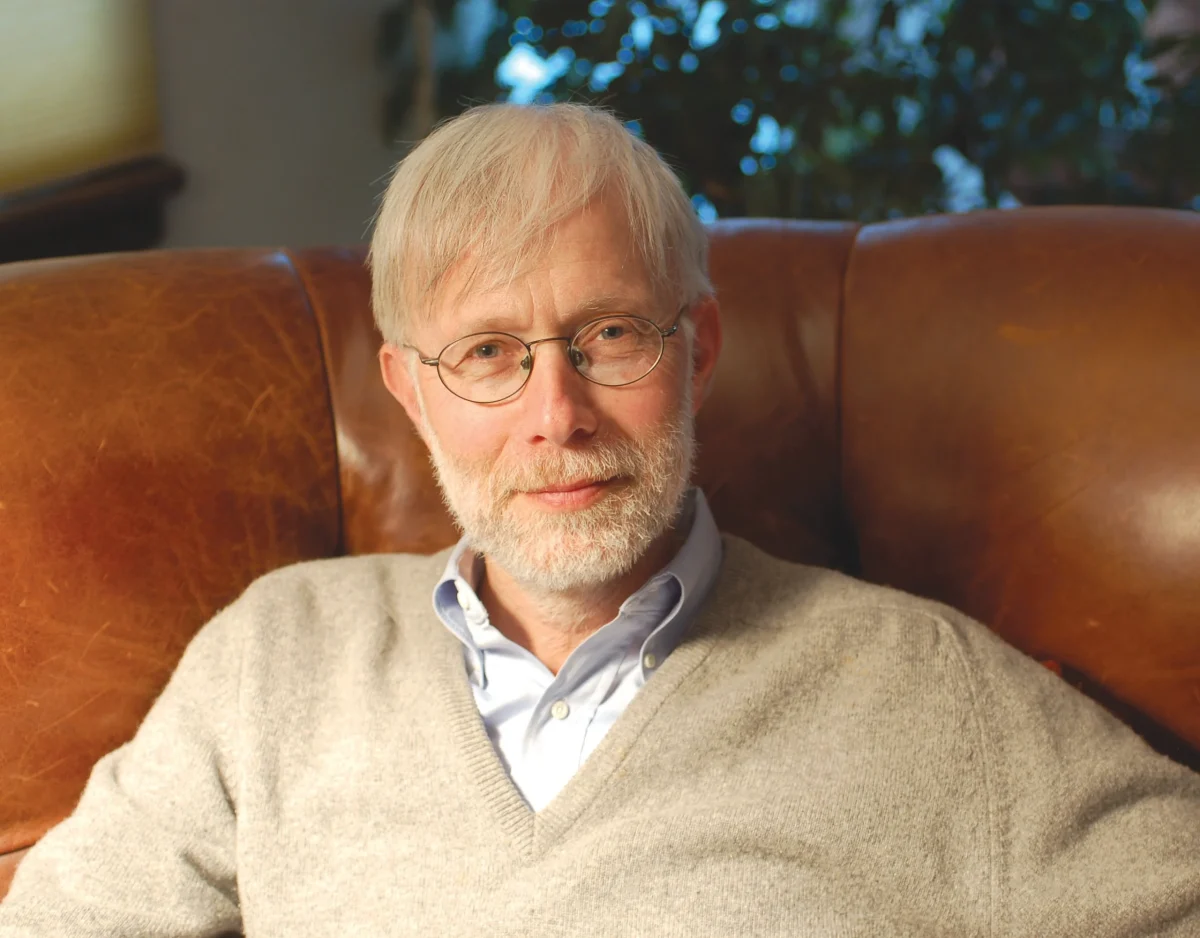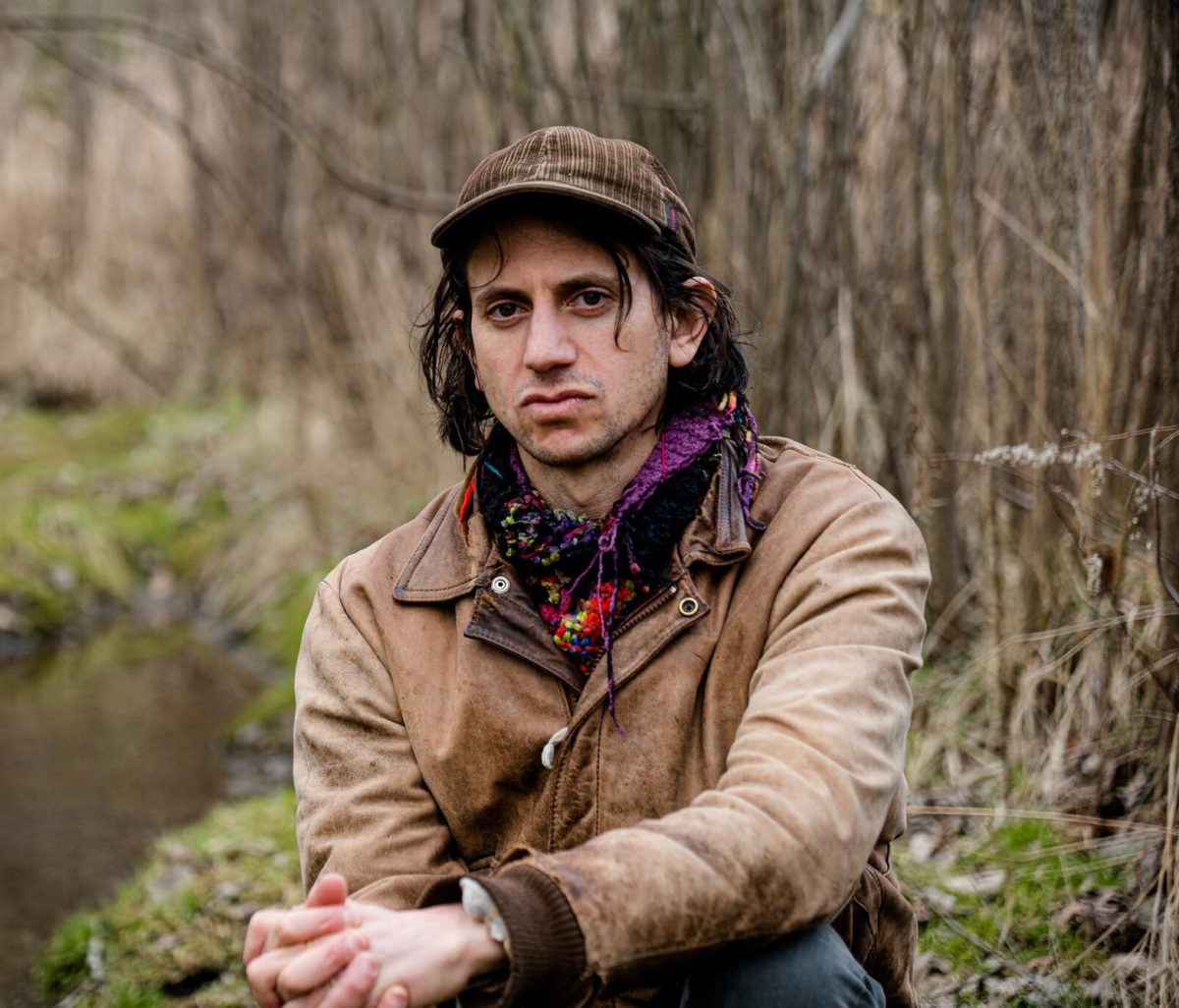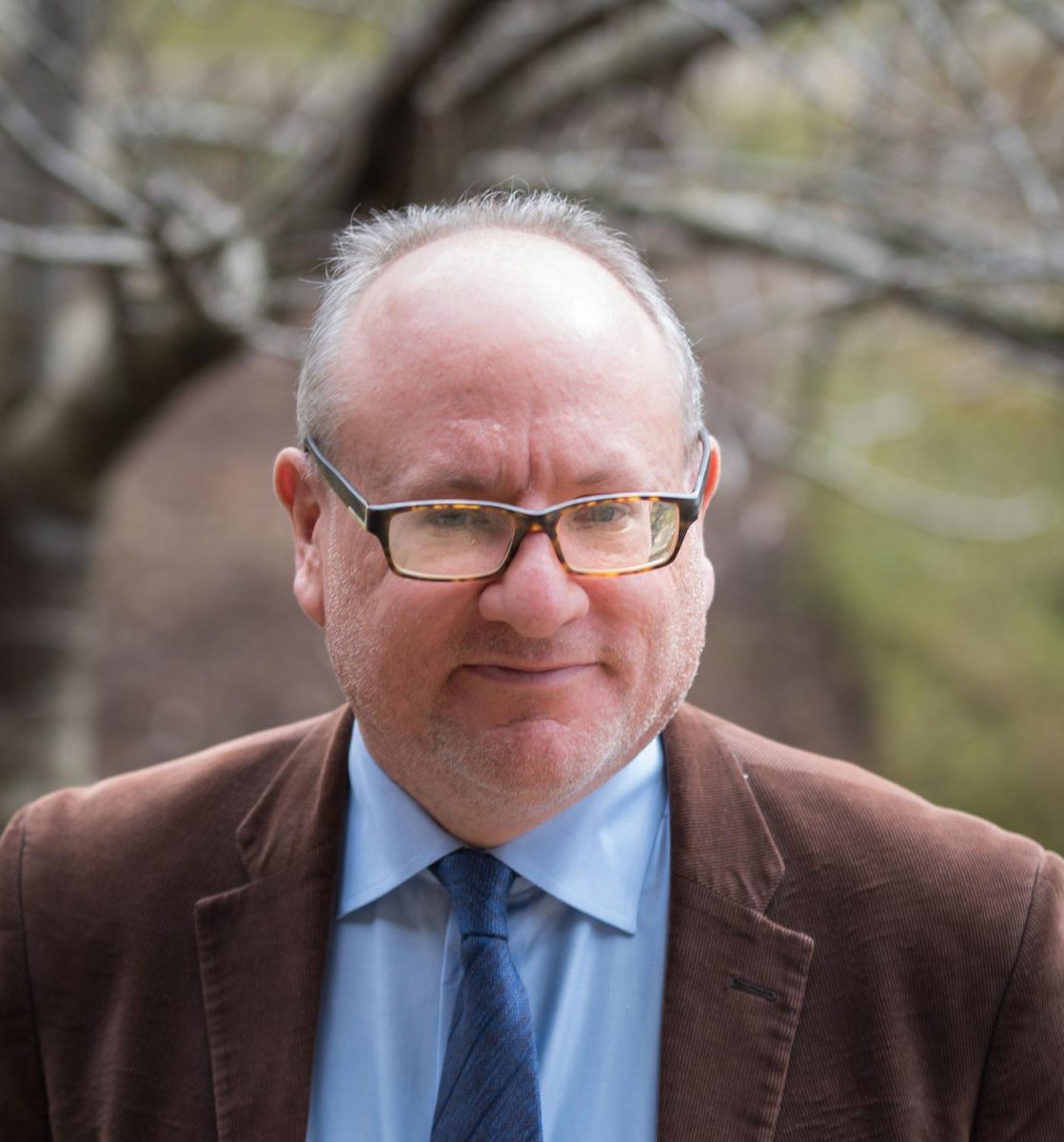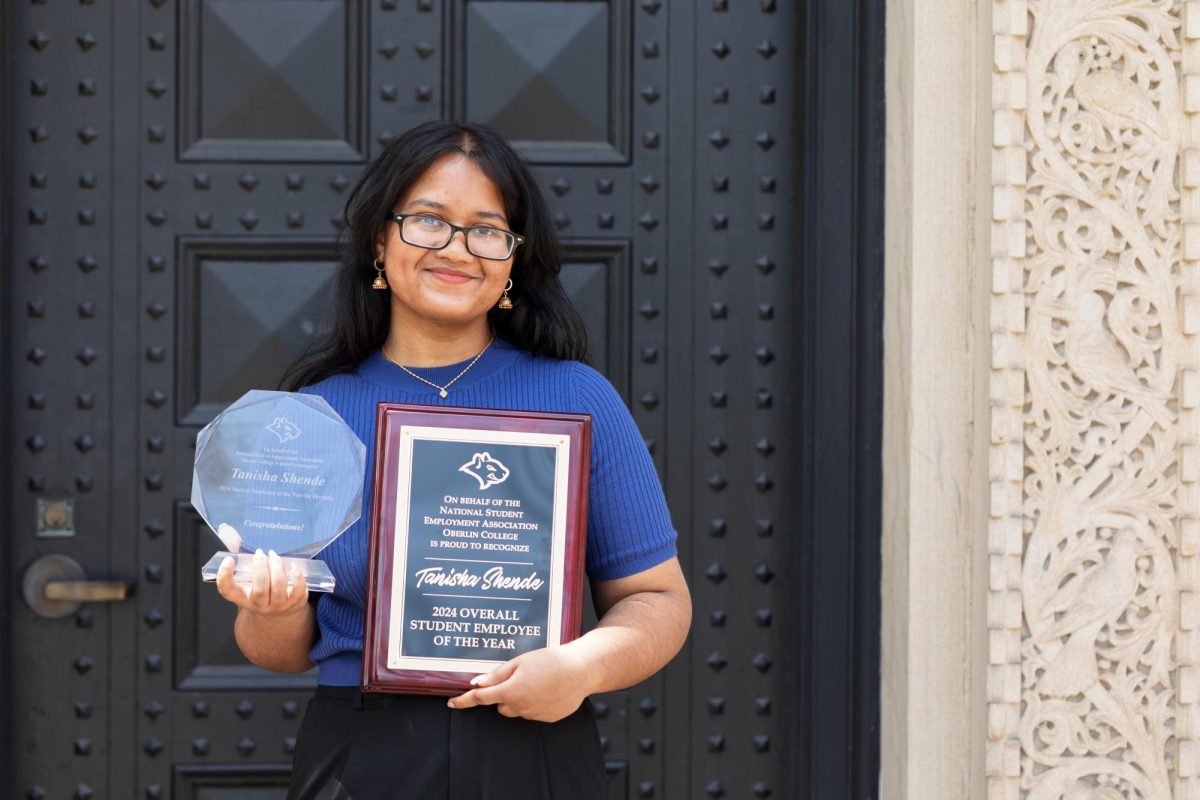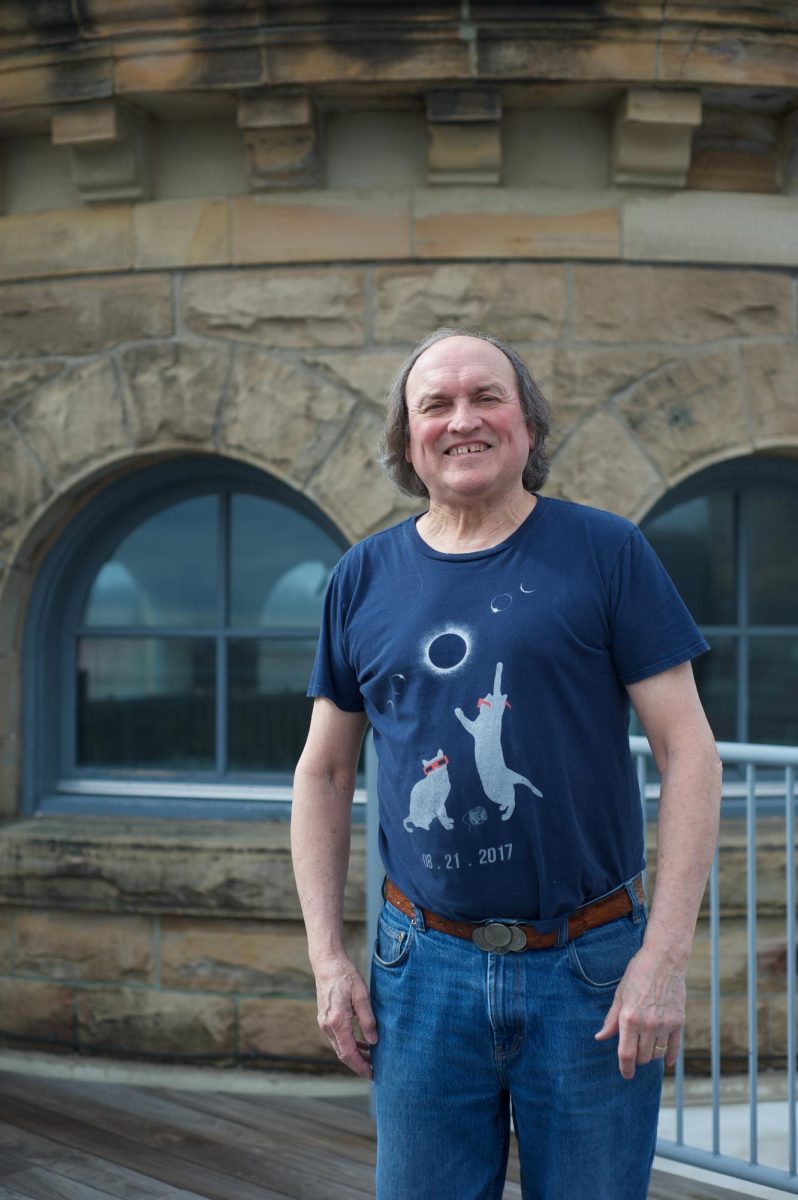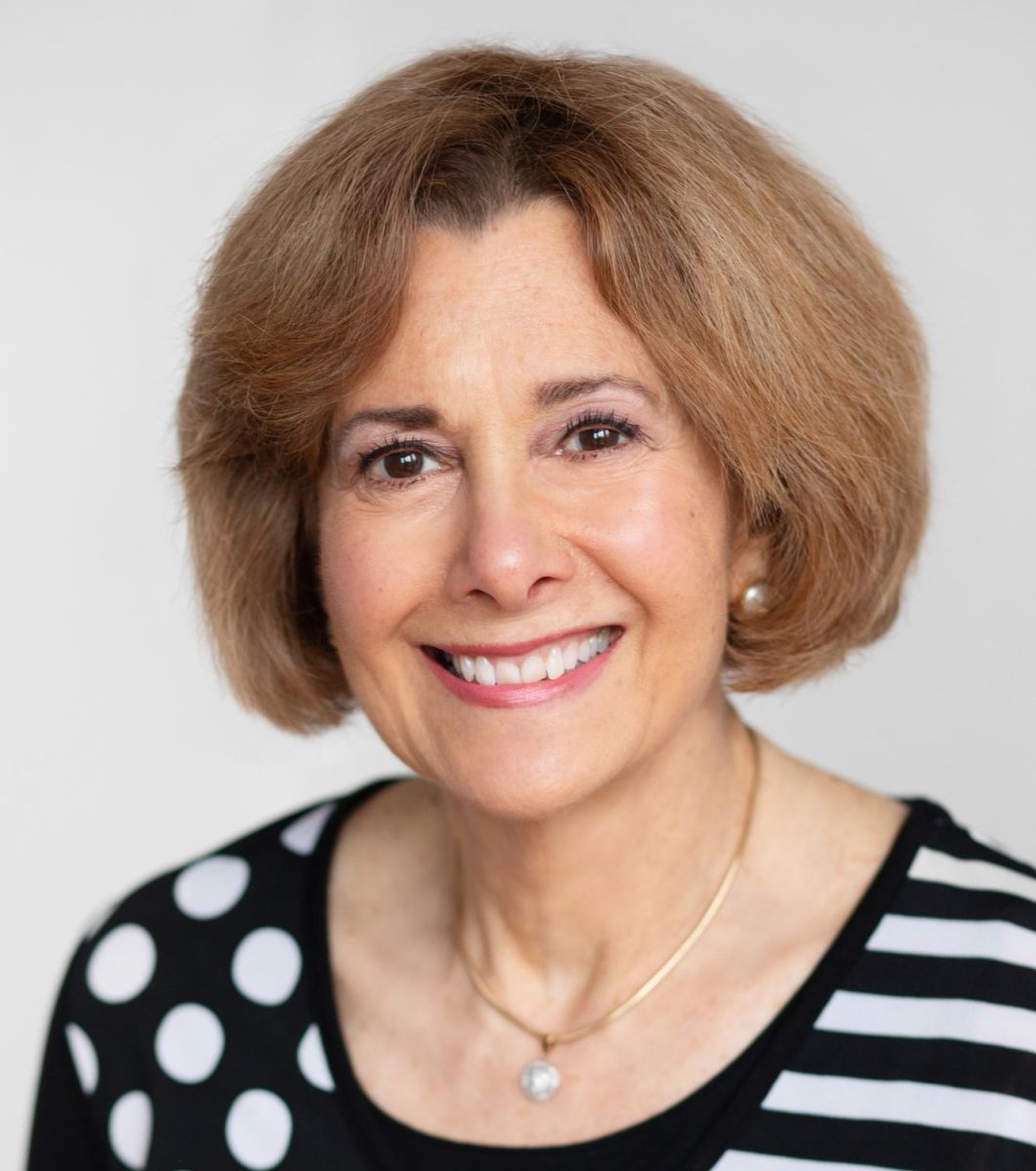Libni López is a therapist who focuses on bilingual therapy and helping trans individuals with gender-affirming care. From 2017 to 2023, he worked with the College as a program fellow for the Multicultural Resource Commons and a bilingual therapist at the Counseling Center. He now owns his own private practice and also teaches the Mindful Meditation workshops with the Allen Memorial Art Museum. López was recently elected to City Council for the first time. He will enter Council in January 2024.
This interview has been edited for length and clarity.
How did you come to Oberlin in the first place and what were your first jobs here?
I came to Oberlin in 2017. My husband is a professor in the Chemistry department and he was offered a tenure-track job back then. We both decided to make that change from California and decided to make Oberlin our home. When I first got here, I was without employment. The Multicultural Resource Commons at the time was looking for a community fellow for the Latinx community. My work in California, being a bilingual therapist, was focused on working with Latinx people. So I was a therapist at the LGBT Center and had done a lot of community work in the Latinx community. It felt like the perfect fit at the time. Even though it was not a position in my profession because I’m a therapist by trade, I felt that my work shared a lot of similarities in supporting the community. I was at the Multicultural Resource Commons for about a year and a few months, and then I transitioned to Student Health and Counseling as staff bilingual therapist. I did that for four and a half years.
What was your experience like working for the College?
My experience at the Multicultural Resource Commons was absolutely amazing. I got to really interact with students one-on-one. I got to do a lot of programming and a lot of training. Within a year and a half, I became the director of Obies for Undocumented Inclusion. My title then became Program Coordinator for Undocumented Student Initiatives. I was doing all the training for UndocuAllyship and providing a lot of support for staff and faculty, and this remained my role after I left and went into being a therapist at the Counseling Center. I got to work collaboratively with a lot of faculty and staff. I got to work a lot with the community. I was involved in many organizations in the community outside of the College, including outreach with the First Church in Oberlin and the Urban League, which is what allowed me to interact with people in town that are not associated with the College.
It was a lot of work. Many hours, probably more than I expected. It was incredible work and then I transitioned into being a bilingual staff therapist. I was working one-on-one with students being a therapist, which I had missed. I began to focus on providing bilingual therapy to Latinx students again, but also trans folks because that’s also my training from back in California. I was working with a lot of trans youth. I provided training to the staff at the Counseling Center on how to work with trans students, such as anything that related to gender care, including providing letters of support for hormone replacement therapy or medical gender support. I ended up doing things on my own, expanding to just having my own private practice.
Why did you choose to run for City Council and what was your experience canvassing?
Since I came here in 2017, I had no clue what living in Ohio would look like. I began to notice that there were Latinx people here, but they weren’t very visible. They knew each other and they worked in town or in agriculture and the surroundings but they were very reserved and kept to themselves. I met a group of them at the soccer fields because that was a place that they gathered on their breaks. I approached them and began to interact with them; a few years later we became really close. And then I realized that a lot of them didn’t feel there were many resources or did not feel safe because of their immigration status.
I began to do a lot of work with providing information, connecting with organizations that provide support for immigrants. I noticed that there was a huge need for community organizing, but also there was a lot of desire from community members to do the work. There are many people in town who are as passionate as I am, who wanted to do something about it, but didn’t know how and didn’t know who to go to. From that came the birth of the organization that I’m a board member of, which is the Oberlin Community Supporting Immigrants.
That work did not start with me. It was already here, and I was just a piece of that puzzle. John and Linda Gates run this organization called Santa Elena Project of Accompaniment, which you might see at the farmers market. They usually sell jewelry together that provides support for building schools in Guatemala and supporting immigrants in town.
I began to be involved more in the politics of what it means to have sanctuary city policies. I noticed that there were some things that didn’t align with what it meant to be one. It got me more interested to see what else might need another pair of eyes and a voice.
I felt very honored that people were so quick to offer help and support. A lot of the credit goes to my friends and colleagues who spread the word that I was running for City Council. So canvassing was really on my friends, my neighbors, my community to provide the voice. I did not go knocking door-to-door or pass out a hundred thousand flyers to the town. I was very intentional when I spoke about it. When people asked what they could do, my only ask was to share with other people why I am running, to mention it to their friends, their neighbors, and to students. I feel like that’s the reason why I was able to get elected. I did not advertise on social media. I didn’t open up a webpage or a Facebook page. I just did it by word of mouth.
Why is your work so important right now for the communities that you serve?
It’s important because they matter and they’re constantly under attack. It’s important because of the current political climate that we’re in; the fight for the basic rights of trans people to exist, for immigrants to feel safe, for people to just be respected and valued for who they are. Even though Oberlin is a sanctuary city, no one is immune from being attacked. I feel like bringing a voice and showing up is how you make and change communities.


